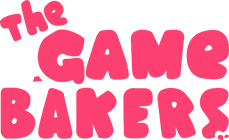Interview with Thomas Brasdefer & Diana Diaz Monton
Hello everyone,
If so many players could enjoy Haven in 9 different languages, it’s thanks to our amazing translators. It’s time to highlight their work with an interview of Thomas Brasdefer and Diana Díaz Montón!
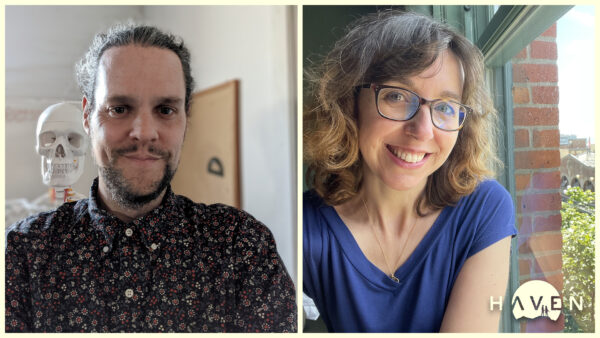
Can you introduce yourself, your background and your work on Haven?
Thomas: My name is Thomas, I’m an anthropology professor currently at University of Vermont, I specialize in linguistics and I translated Haven from French to English.
Diana: My name is Diana, I am a professional translator specialised in game localization, and have been working in the industry for over 20 years. I have participated in the localization of hundreds of games, as a translator, editor/proofreader or multilingual project manager. I am also co-founder of Native Prime. I was the Spanish editor at Haven.
According to you, what are the most important qualities to be a great video game translator?
Thomas: Translation is never just about words, most of the work is making sense of something for someone else… Which means that the translator has to understand the reasons why the words exist. But in a video game you have a million things to interact with, from the NPCs to the environment, and a surrounding community of gamers; so you have to take an entire universe into account before you even get started. I would say that having a carefully crafted game as material is definitely a big part of it.
Diana: I completely agree with Thomas. In game localization, the goal is to convey the emotions into the different target languages, so players can truly engage with the characters they are controlling and immerse themselves in the game universe. A good video game translator needs to understand how games work as a whole, they should be familiar with the different mechanics. It is important that they also master the source formats we work with, and how strings will be used in the game, be it as part of the interface or as VO dialogue. And also need to know their target audience well, their expectations. But overall, translators have to master the source and target language so the results sound fluent and natural and match the tone and style of each particular game.
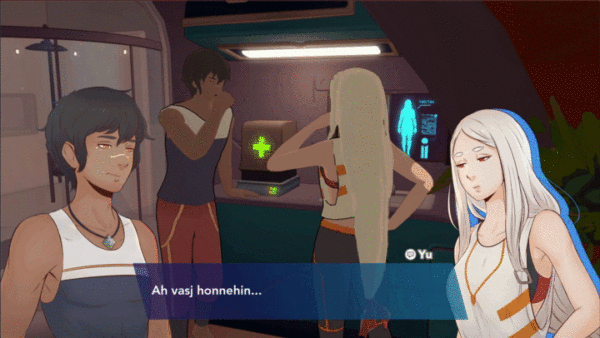
Haven is a huge project, with more than 90 000 words. How do we start while translating a game as talkative? How long did it take to translate the game?
Thomas: Believe it or not, Haven isn’t the longest game I’ve worked on. And on top of that, there are parts of the script that didn’t make it into the game! I actually like it better when there is a lot of dialogue, because that gives me time to become closer with the characters, and to watch them grow through the storyline. But it does have some drawbacks when it comes to continuity: games aren’t being developed in a linear manner, there’s alternate stories, some parts are ready before others, some need to be re-written, etc. I think it took a bit over 3 months for the whole process, but it was spread out over the course of a year from start to finish.
Diana: As Thomas mentioned, this is not a large game, though it does have quite a bit of dialogue. I also agree that this is the most fun part of any project. Dialogues give you the chance to become more creative, and you can decide how a character should talk, based on their personalities. It is fun to shape them through the words we type. The project spanned over several months, mostly because not all content was ready when we first started working on it. The drawback is that there are several pauses and it makes it a bit harder to get a general picture of the game and the different parts that make it.
How do you approach cultural specificity? Some references could make sense in some countries, when they don’t in others. What are the best practices for you?
Thomas: Losing your reference points is a big part of Haven, so I had to be careful for what is alien to Kay and Yu to be also alien for gamers, while also maintaining the cozy parts as relatable. This is where knowing the characters is absolutely crucial because I’m not telling the story, they are! My job is to make sure that gamers are hearing the story more than my own voice.
Diana: This is what localization is all about, bringing the game, the story, the characters to a target audience through expressions and words they can relate to. Again, the goal is to keep in the target version the same effect the text causes in the original. Haven however has its own universe, so the challenge here was not to use references to the real world! I remember one line in which one character called another a “parsnip” and one of the translators was like: “But parsnips don’t exist in Haven”. So we had to change that to something else that made sense in the game universe. We had to keep on our toes and that was fun!
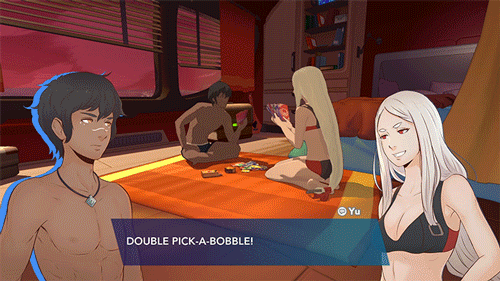
For Haven, writer Pierre Corbinais created a lot of new words: apple dew, creamberry, loofacrid, or even swear words like bloot or boron! How was it to translate those words?
Thomas: Pierre is a terrific writer, and I’m always looking out for what he comes up with. He speaks English quite well too, so he definitely had some input when it came to word inventions, as did Emeric, the creative director for The Game Bakers; some words they came up with, some I gave them options. This is another case where their vision is much more important than my translation because they know the universe better than I do. Cursing is especially difficult because you don’t casually say them, they come straight out of your limbic system; I liked using “boron” as a swear word tough, because it sounds very close to an existing insult, but it’s also an ore that’s kind of everywhere and not particularly valuable.
Diana: This was the most fun part in the localization process. All three translators decided together each of the terms in the game. Each of us suggested a translation and then held a couple of meetings to discuss the terms one by one to settle on a final translation. It was fun making up words for the food and medicines. We based our translations on the French and English alike, also considering the description and the visuals, trying to come up with words that were evocative and that matched the game lore. We also came up with a series of cursing words that we had to use in a different way compared to English. We spent a lot of time deciding the names of the planets. We felt these were an important part of the universe and we wanted to get them right. I am quite happy with the names we came up with.
Thomas: We owe the planets’ names to one Murray Gell-Mann, who actually passed away while the game was in production (look him up!). One of many cheeky references to be found in Pierre’s writing.
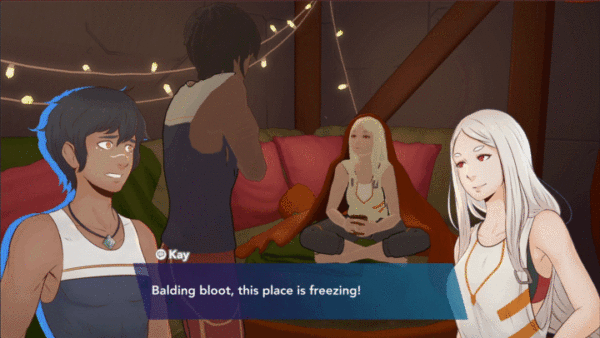
What makes a difference for you to be able to provide the best translation? Is it playing the game, a good translation guidebook, a good glossary, direct access to the team to ask questions, a little bit of all of that or actually something else?
Thomas: There’s no one-size-fits-all approach. I generally find it hard to rely on glossaries and guidebooks for video games, because it’s such a different practice than other visual media, but sometimes you need specific technical terms. I’ve also never started working on a game that was finished or fully playable (at first I only had gifs for Haven!), but having storyboards and demos is definitely a plus. Access to the team is certainly important in a narrative game, because they have a pre-existing relationship with the characters, but they also have to trust that you are doing your job. So I guess the key is to make sure that translation is part of your design process, and not an afterthought.
Diana: I’d say a bit of everything. It all depends on whether the game is finished by the time we start working on it, or if it’s still early in development and subject to lots of changes. I’d say, the key is to have good communication with the dev team, so we can ask questions and get as many assets as they can share with us: be it a build, gameplay videos or screenshots. In Haven we received a very detailed lockit up front, which helped us all get familiar with the characters, the universe and the mechanics of the game. This to me can be even more valuable than playing the game, since it helps us define how characters will talk, or how we will tackle the localization of certain terms. Having contextual information in the files we work is also very helpful, so that we know exactly where a string is used in the game, or in which context a line is spoken.
What did you enjoy the most while working on Haven?
Thomas: Literally everything: it was a wonderful experience from day one because everyone at The Game Bakers is so talented and dedicated, and the game is obviously beautiful. It felt really comfortable to spend all this time with Kay and Yu. And receiving a new batch of text was always exciting!
Diana: This was a really nice project. The game is beautiful, the characters are lovable and the dialogue was very relatable, so it felt great giving voice to them in our language. I was the editor in the Spanish team, so I got to discuss lots of things with the translators and had to make it all consistent and cohesive. As an editor, or if you are the sole translator, you get to read all the content and that gives you a good understanding of all bits and parts. The Game Bakers were also a very cooperative team, always eager to help. Feeling backed up and taken into consideration is not always a given!
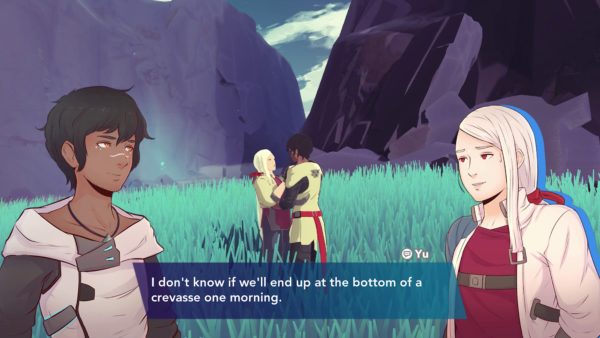
And what was the most challenging for you?
Thomas: Because I was discovering Source at the same time as the characters in-game, approaching some of the practical details was sometimes pretty abstract. Things like Flow and Rust have no analog either for me or for them, so even if I knew more, it wouldn’t necessarily be helpful since the characters don’t have that information. It’s too tempting to over-explain things when you’re dealing with the unknown.
Diana: Probably defining the right terms to keep faithful to the game universe. We wanted to get it right so we took our time. As Thomas mentioned, there are some elements whose meaning was harder to grasp, such as the Flow, and we struggled to convey the exact meaning, but eventually everything fell into place!
Any last word for Haven players?
Thomas: I have to say that the community that came out of Haven is also something to behold. I still lurk on Discord and Twitch pretty regularly to check out how people are reacting to the game, whether it’s their first or hundredth play-through. But it was especially soothing during the early months of the pandemic, when I could just plug in to Haven and enjoy some quality time with my friends… including Oink!
Diana: Since the game was launched, reading all comments players left in Twitter and Discord, I could already tell this was quite a special community, very welcoming. And I feel honoured to be part of it. I just hope the players continue enjoying Yu and Kay for many years, in whatever language they choose to play!
You can follow Diana on Twitter and read more about Thomas on his website!

